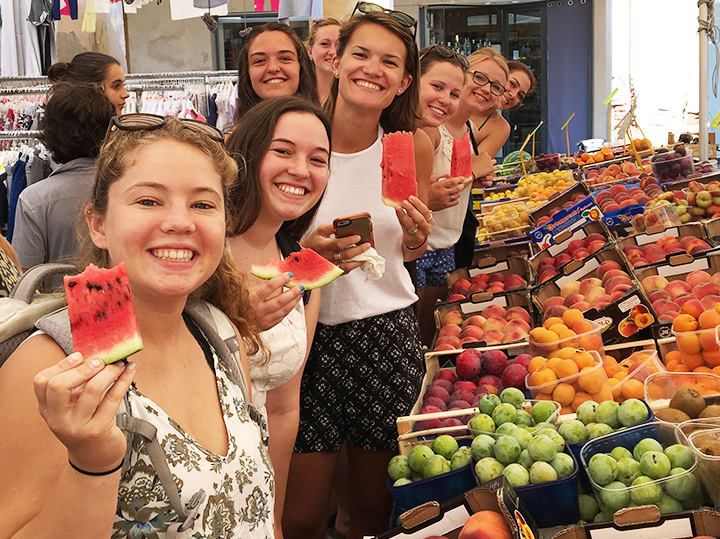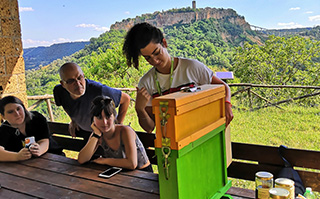Health science, psychology, and public health abroad
International experience is valued by employers.
In this job sector, being familiar with certain lab equipment or techniques from your study abroad program or internship can move your resume to the top of the pile — more so than a high GPA.
With USAC, you can stay on track with your degree and give your resume a boost, all while getting the experience of a lifetime. So, what are you waiting for? Discover popular health-related courses below and get started today.
Stay on track
USAC offers two different program models - Specialty and Partnership. You can choose to align your study abroad experience with your academic needs by browsing popular course subjects and their available program locations, below.
- Specialty Programs are run by an on-site USAC Resident Director (RD) and may include classes with other USAC students.
- Partnership Programs are run by the international programs office and staff at the foreign university.
- Biology
- Chemistry
- Environmental Health
- Food and Nutrition
- Global Health
- Health and Wellness
- Psychology
- Public Health
- Sports Science
- Traditional Medicine
- Women’s Health
- Anatomy
- Exercise Science
- Food Science
- Health and Wellness
- Health Sciences
- International Public Health
- Neuroscience / Neuropsychology
- Nursing Fundamentals
- Occupational Health
- Physiology
- Psychology
- Public Health
- Social Work
- Women’s Health
"I already feel like the experience helped me gain transferable skills like adaptability, problem-solving, and networking. My time abroad always comes up in interviews."
— Ted K., USAC Santiago
Popular courses in Health, Psychology, and Public Health
Italy: Reggio Emilia
 Health and Wellness Communication
Health and Wellness Communication
Taught by Visiting Professor Meg Lagunas, University of Wisconsin-Eau Claire
Are broadcasted messages about health issues helpful? The media often shares messages that impact public health, which adds a layer of complexity to the patient-caregiving relationship, social interactions, and cultural values. In this course, you will discuss and analyze health communications and their relationship to the media.
Dr. Meg Lagunas is Associate Professor of Nursing and Director of Clinical Learning Center at the University of Wisconsin-Eau Claire. Dr. Lagunas teaches courses on critical care nursing, simulation, and inter-professional education.
Italy: Viterbo
Food and Culture

Taught by Visiting Professor Maria Giovanni, California State University, Chico
You are what you eat. Food is a topic everyone from every ethnicity has personal experience with; it is so common that its cultural connotations tend to be overlooked. Food is often related to identity and ancestry, whether that’s positive or negative. Let’s explore the general topic of food and culture and then dive into the specifics of identity and meaning.
As a food scientist with training in nutrition, Dr. Giovanni’s career has spanned education, government, and the food industry. Her research uses sensory evaluation to improve acceptance of diversity. Her interactive classes engage students and use food to link people together and others to create healthy people and a healthy planet.

